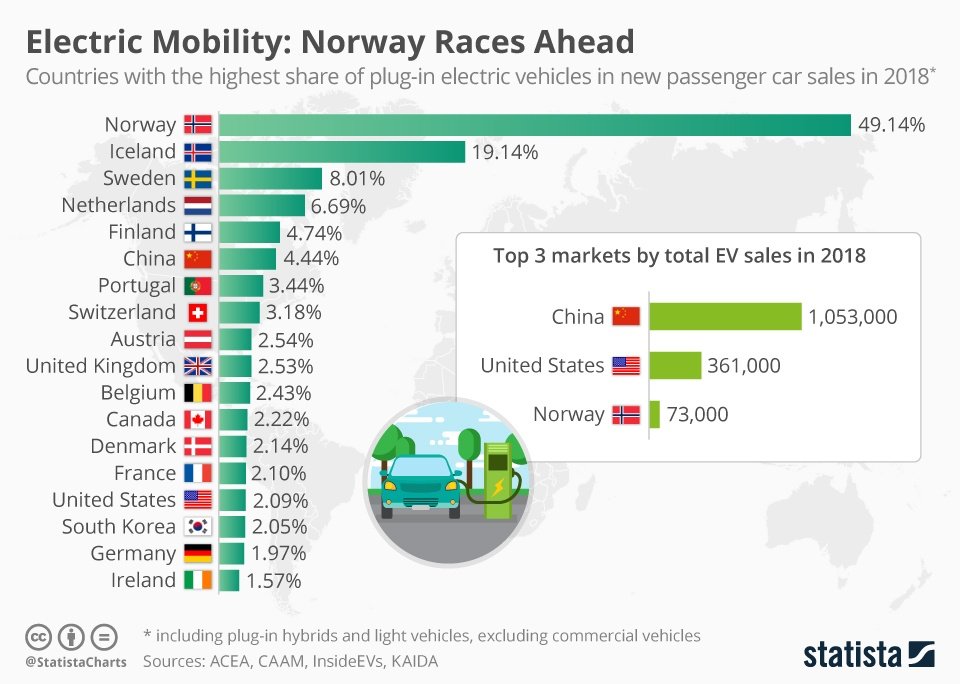Are Electric Vehicles really the future of Indian Automobile Industry? Is India ready for this switch?
What is an Electric Car?
An electric car is an automobile which is propelled by one or more electric motors, using energy stored in rechargeable batteries. Generally, the term EV refers to an electric car. In the 21st century, EVs saw a resurgence due to technological developments, and an increased focus on renewable energy. Currently, there are three kinds of EVs in the market:
- Solar-Powered EVs.
- Hybrid Powered cars powered by a mix of an internal combustion engine and batteries.
- Electric cars with onboard rechargeable batteries – PBEV ( Pure Battery Electric Vehicle ).

Advantages of EVs over Fuel Cars
EVs offer lower operating cars when compared to internal combustion engines. Also, we can save around 70-80% of the money from fuel and maintenance perspective. Last but not the least, EVs can reduce emissions to preserve our natural environment.
Is India Ready for Electric Cars?
According to Germanwatch ( a non-profitable organisation based in Bonn, Germany ) Climate Risk Index 2020, India’s position has worsened from 14th spot in 2017 to 5th spot in 2018 in the global destructibility ladder.

One of the big reason Norway is so far ahead than any other countries is because of its government’s zero-emission plan and their sustainable infrastructure.
In 2015, India came up with Faster Adoption and Manufacturing of (Hybrid &) Electric Vehicles in India (FAME India) Scheme to promote manufacturing of electric and hybrid vehicle technology and to ensure sustainable growth of the same.
Even though the Indian government is coming up with many plans to adopt more electric vehicles and their manufacturing in our country, there are a number of challenges in the adoption of electric vehicles which includes:
- Lack of Battery Charging Infrastructure.
- Battery Performance.
- Lack of Recycling Battery Stations.
How long will India take to adopt Electric Cars?
According to recent reports, Current EV market is only 1% in the total sales in India. The central government is also providing an income tax deduction of ₹1.5 lakh on the interest paid on the loans for EV purchases.
Recently the Indian government introduced the FAME II scheme with ₹10,000 crores of fund allocated. The aim of the program is to ramp up the manufacturing and adoption of EVs as well as the charging infrastructure ecosystem in India.
Last week, Amazon India announced that it has started rolling out its electric vehicle delivery fleet in the country, with the goal to have 10,000 such vehicles on the Indian roads by 2025. Amazon CEO Jeff Bezos announced this via tweet mentioning “Hey, India. We’re rolling out our new fleet of electric delivery rickshaws. Fully electric. Zero carbon. #ClimatePledge”
With the Indian market lacking behind with sustainable infrastructure, it is tough to assess the time period India will take in switching to electric cars. However, we can expect a good number of adoption in 1-2 years. Also, I believe that mass adoption won’t take much longer time.
Keep in touch as I’ll be posting some interesting updates on the various EV models by world-class manufacturers for those of you who wish to spend on the future commutation in an economic as well as sustainable way.
EV Series: Chapter 1 – TATA Motor’s EV Models https://justalibrary.com/index.php/2020/01/25/ev-series-chapter-1-tata-motors-ev-models/
Stay tuned! Stay updated!
